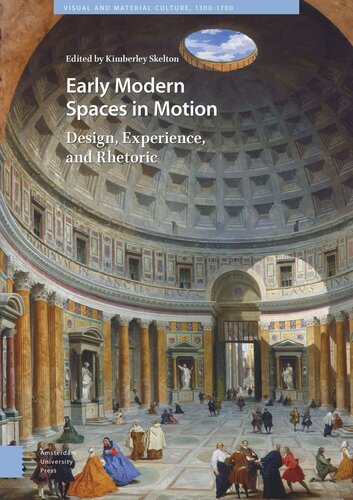

Most ebook files are in PDF format, so you can easily read them using various software such as Foxit Reader or directly on the Google Chrome browser.
Some ebook files are released by publishers in other formats such as .awz, .mobi, .epub, .fb2, etc. You may need to install specific software to read these formats on mobile/PC, such as Calibre.
Please read the tutorial at this link: https://ebookbell.com/faq
We offer FREE conversion to the popular formats you request; however, this may take some time. Therefore, right after payment, please email us, and we will try to provide the service as quickly as possible.
For some exceptional file formats or broken links (if any), please refrain from opening any disputes. Instead, email us first, and we will try to assist within a maximum of 6 hours.
EbookBell Team

4.0
56 reviewsStretching back to antiquity, motion had been a key means of designing and describing the physical environment. But during the sixteenth through eighteenth centuries, individuals across Europe increasingly designed, experienced, and described a new world of motion: one characterized by continuous, rather than segmented, movement. New spaces that included vistas along house interiors and uninterrupted library reading rooms offered open expanses for shaping sequences of social behaviour, scientists observed how the Earth rotated around the sun, and philosophers attributed emotions to neural vibrations in the human brain. Early Modern Spaces in Motion examines this increased emphasis on motion with eight essays encompassing a geographical span of Portugal to German-speaking lands and a disciplinary range from architectural history to English. It consequently merges longstanding strands of analysis considering people in motion and buildings in motion to explore the cultural historical attitudes underpinning the varied impacts of motion in early modern Europe.